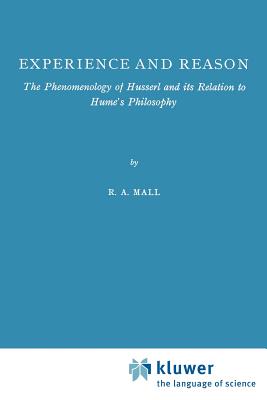
Experience and Reason: The Phenomenology of Husserl and Its Relation to Hume's Philosophy
Paperback
ISBN13: 9789024714940
Publisher: Springer Nature
Published: Jul 31 1973
Pages: 153
Weight: 0.54
Height: 0.36 Width: 6.14 Depth: 9.21
Language: English
Also in
Philosophy
Philosophy After Marx: 100 Years of Misreadings and the Normative Turn in Political Philosophy
Henning, Christoph
Paperback
Make Peace before the Sun Goes Down: The Long Encounter of Thomas Merton and His Abbot, James Fox
Lipsey, Roger
Paperback
Descartes: Meditations on First Philosophy: With Selections from the Objections and Replies
Descartes, Rene
Paperback
Meditations for Mortals: Four Weeks to Embrace Your Limitations and Make Time for What Counts
Burkeman, Oliver
Hardcover
The Daily Stoic: 366 Meditations on Wisdom, Perseverance, and the Art of Living
Holiday, Ryan
Hanselman, Stephen
Hardcover
The Boy, the Mole, the Fox and the Horse Fifth Anniversary Limited Edition: The Global Bestseller
Mackesy, Charlie
Hardcover
The Obstacle Is the Way Expanded 10th Anniversary Edition: The Timeless Art of Turning Trials Into Triumph
Holiday, Ryan
Hardcover
My Big TOE Awakening Discovery Inner Workings: The Complete My Big TOE Trilogy Unifying Philosophy, Physics and Metaphysics
Campbell, Thomas
Hardcover
The Ethical Slut, Third Edition: A Practical Guide to Polyamory, Open Relationships, and Other Freedoms in Sex and Love
Easton, Dossie
Hardy, Janet W.
Paperback
Outraged: Why We Fight about Morality and Politics and How to Find Common Ground
Gray, Kurt
Hardcover
The Word of Dog: What Our Canine Companions Can Teach Us about Living a Good Life
Rowlands, Mark
Hardcover
CSB She Reads Truth Bible, Rose Gold Leathertouch: Notetaking Space, Devotionals, Reading Plans, Easy-To-Read Font
Csb Bibles by Holman
Myers, Raechel
Williams, Amanda Bible
Hardcover
How to Think Like a Roman Emperor: The Stoic Philosophy of Marcus Aurelius
Robertson, Donald J.
Paperback
The Way, the Enemy, and the Key: A Boxed Set of the Obstacle Is the Way, Ego Is the Enemy & Stillness Is the Key
Holiday, Ryan
Hardcover
Other Minds: The Octopus, the Sea, and the Deep Origins of Consciousness
Godfrey-Smith, Peter
Paperback
Self-Reliance and Nature: The Complete First and Second Series of Emerson's Essays
Emerson, Ralph Waldo
Hardcover
How to Think Like Socrates: Ancient Philosophy as a Way of Life in the Modern World
Robertson, Donald J.
Hardcover
Hospicing Modernity: Facing Humanity's Wrongs and the Implications for Social Activism
Machado de Oliveira, Vanessa
Paperback
My Big TOE Awakening Discovery Inner Workings: The Complete My Big TOE Trilogy Unifying Philosophy, Physics, and Metaphysics
Campbell, Thomas
Paperback
Art of Living: The Classical Mannual on Virtue, Happiness, and Effectiveness
Epictetus
Lebell, Sharon
Paperback
The Kemetic Tree of Life Ancient Egyptian Metaphysics and Cosmology for Higher Consciousness
Ashby, Muata
Paperback
Consolations: The Solace, Nourishment and Underlying Meaning of Everyday Words
Whyte, David
Paperback
La Disciplina Marcará Tu Destino / Discipline Is Destiny: The Power of Self-Cont Rol
Holiday, Ryan
Paperback
Beyond Stoicism: A Guide to the Good Life with Stoics, Skeptics, Epicureans, and Other Ancient Philosophers
Pigliucci, Massimo
Alexander Kunz, Meredith
Lopez, Gregory
Paperback
American Leviathan: The Birth of the Administrative State and Progressive Authoritarianism
Ryun, Ned
Paperback
The Dictator's Handbook: Why Bad Behavior Is Almost Always Good Politics
Smith, Alastair
Bueno de Mesquita, Bruce
Paperback


 Sign-In
Sign-In Cart
Cart